My first impression of God’s Trigger, unkindly, was that it was a co-op Hotline Miami clone. It has a similar initial feel, replacing the drug-soaked Florida psychedelia with angels, demons, and a surf-rock soundtrack straight out of a Robert Rodriguez movie.
You’re up against a small army of murderers, crammed into a top-down maze with you, and neither they nor you can take more than one hit. It’s full-contact rocket tag, where nobody just dies when they could ragdoll to the floor spraying blood from at least two severed limbs. Everybody in God’s Trigger is basically a water balloon filled with chunky salsa. Backtrack through a stage after you’ve cleared it, and it’s a messy giallo hell of broken bodies and empty guns.
When you die – and you will, easily and often – you’re back into the game again in seconds, starting from your most recent checkpoint. You’re graded on style and efficiency, using any means necessary to kill and survive. It’s even got that move where you can throw a stolen blunt object across the room to stun somebody, then crush their skull against the floor before they can recover.
Once I got a few levels into God’s Trigger, however, it started to change things up on me. Surprisingly, it turned out to be one of the better-paced games I’ve played lately, once I figured out what the game actually was.
When At Least Three Sub-Genres Love Each Other Very Much…
The thing about God’s Trigger is that at its core, it’s a twin-stick shooter. It reminds me of nothing quite so much as Total Carnage or Smash TV (I’m old, okay?), but with a few extra levels of complexity on top.
The Hotline Miami comparison’s still valid, but it becomes less accurate with every level you clear. You’ve got a lot of options and extra tactics in God’s Trigger, especially once you have a few levels and perks under your belt, which means you have a surprising amount of control in any given situation.
There are always going to be rooms and encounters that simply come down to how fast and accurately you can move and shoot, but with forethought and exploration, you can keep that to a minimum. The best fights, after all, are the ones where you have an unfair advantage.
More importantly, God’s Trigger has a lot of faith in itself. It introduces new challenges, gimmicks, and mechanics at a healthy rate, but never departs too far from its original formula or lingers too long on a new idea; it’s got enough confidence in its central gameplay loop that it isn’t in a hurry to break it. Even the obligatory turret section is A) over with quickly and B) treats the turret as a red herring. (If you actually use it, somebody will toss a grenade and that’s all she wrote. Any tactic that involves standing still is not a winning move in God’s Trigger.)
Gotta Go Through Bullet Hell to Reach Bullet Heaven
In God’s Trigger, you play as Harry and Judy, a renegade angel and an Earth-bound demon, who are on a mission to track down and deal with the Four Horsemen of the Apocalypse. All four are involved in potentially world-ending schemes, with an army of possessed humans at their sides, but dealing with them is just a useful consequence. The Horsemen are part of a conflict that started in Heaven, and Harry’s out to fight his way back in.
In single-player, you control both Harry and Judy, switching between them on the fly with the touch of a button. They both have unique skills, abilities, and primary weapons. Harry can charge ahead, which breaks down weak walls, while Judy can teleport short distances, which can take her to the other side of fences.
Between them, the dash and the teleport open up a lot of new avenues of approach in each stage. They’re often used for simple puzzle-solving, but there are a lot of side passages and back entrances that you can open up with Harry and Judy’s powers. With that, stolen guns, explosives, and the level design, God’s Trigger walks an impressive line between leaving the stages open-ended and never making it too difficult to figure out where you’re supposed to be going.
The Demon’s Better At Hurting People, Go Figure
Each enemy kill charges a special meter, which can be spent to set up a short slow-motion effect, or burned all at once to use a particular super move. At the start of the game, Harry can turn invisible to get by enemies without a fight, and Judy can mind-control a single target for a few seconds, which instantly turns him against anyone nearby. As you level up, you gradually unlock more special moves, like illusionary duplicates that attract enemy fire, but I never found any of them as useful as Judy’s mind control.
In fact, that’s probably the biggest problem with God’s Trigger: Harry is ostensibly the protagonist, but there’s no reason to use him when you could be playing as Judy. Her teleport’s more useful than his dash and has a short stun baked into it by default. The dash is almost useless as an ambush move (I never managed to burst through a wall to gank a dude; more often, the guy would just turn around and shoot me before the dash’s animation finished), and her primary weapon has a lot more range than Harry’s sword.
Harry eventually gets a few useful skills, like adding a shockwave effect to his standard weapon swing, but Judy’s just plain better than he is. In a single-player game, it’s kind of goofy; in co-op, it’s actively detrimental to the experience.
Harry could use a couple of basic quality-of-life offensive buffs to bring him up to Judy’s level. The intention seems to be that he’s more defensively oriented, but God’s Trigger is the sort of game where the only defense you need is to kill everything that moves. There’s no reason to burn meter on Harry’s shields or slows when you could use the same meter as Judy to depopulate some or all of the next room.
There are some fun possibilities in co-op, where Harry can cause a diversion while Judy comes in from another angle and murders everyone, but that adds an unnecessary extra step to your go-to plan. You don’t need to be complex about things when, win or lose, everyone’s only one hit away from death.
For all your options, neither Harry nor Judy ever get any ability that gives you extra health. You can eventually get a perk that gives you a single point of armor against incoming gunfire, but that’s often gone before you know it, and it doesn’t come back. In practice, you need to stay mobile, scout your approach, and cheat like hell.
You can toss grenades into a room ahead of you as a distraction or for crowd control, vaporize unaware enemies with a stealth kill from behind, knock an enemy out by kicking a door open into his face, or use one of the comically overpowered sawn-off shotguns to exterminate an entire area code. I really don’t know why any enemies are carrying weapons besides shotguns. Whenever you see a guy with one of them, you need to treat him like he’s a hostile nuclear power.
There are a lot of cheap deaths and incidental nonsense in God’s Trigger, and I spent a fair bit of time shouting at the screen, but it’s all worth it for when everything ends up going your way. When you manage to take an entire room without being detected, or skate through a whole stage without getting killed, it’s a nice kick of satisfaction and adrenaline that reminds you why you enjoy action games in the first place. You earned that momentary bit of smugness.
‘Course, then the next enemy crushes you like a grape. Cycle of life, man.
Pros:
- A gory new-school-meets-old-school action game.
- A nice surf-rock soundtrack.
- Unforgiving, but reasonably fair. You’ll usually know why you died.
Cons:
- It takes a couple of levels before it starts to grow on you.
- Nobody’s going to want to play as Harry.
- You know, I’ve beaten the entire campaign, and I have no idea what the hell “God’s Trigger” is.
I ended up liking God’s Trigger a lot more than I thought I was going to. I don’t think it’s entirely “fair” a lot of the time, but naturally, that’s part of the design. It could use a few more mid-fight checkpoints in the boss battles, and there’s a bit of a learning curve to start with, but once you’ve got the hang of it, the game plays surprisingly smoothly.
I did get frustrated every time I managed to style on a roomful of eight guys, only for a ninth to stroll in from just offscreen and blow my head off, but again, that’s just the kind of game it’s meant to be.
[Note: A copy of God’s Trigger was provided by Silver Dollar Games for the purpose of this review.]

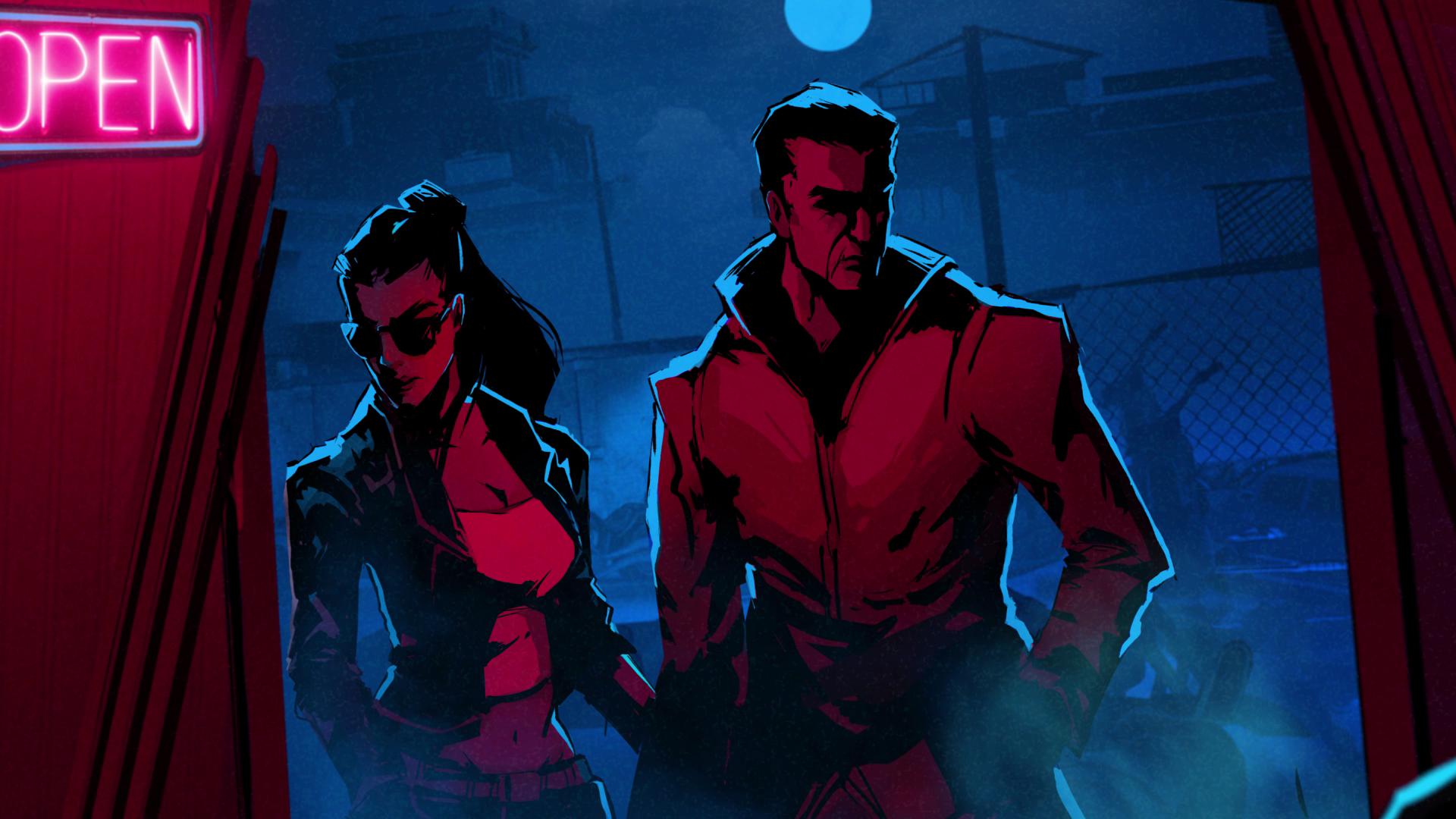
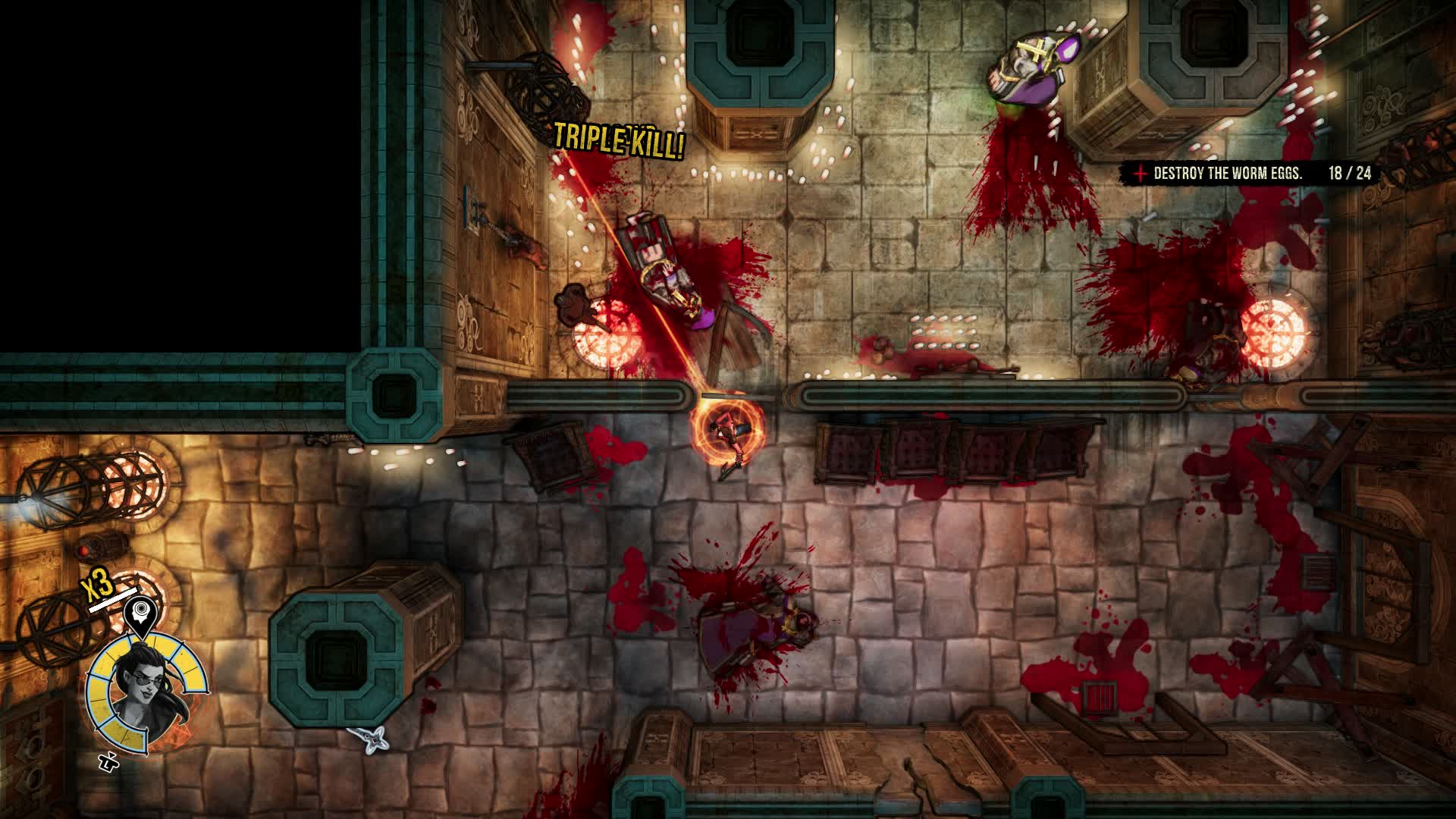
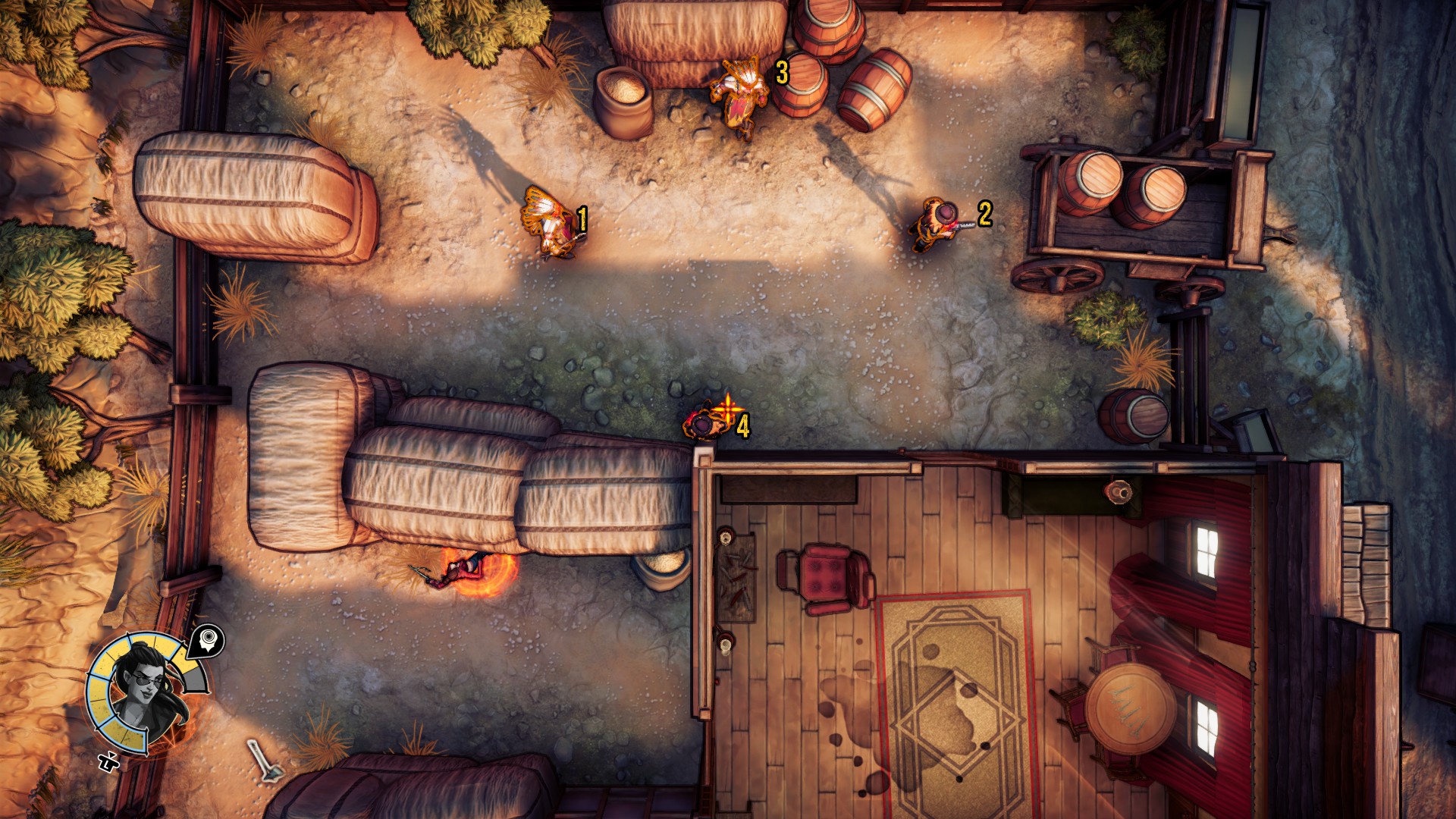
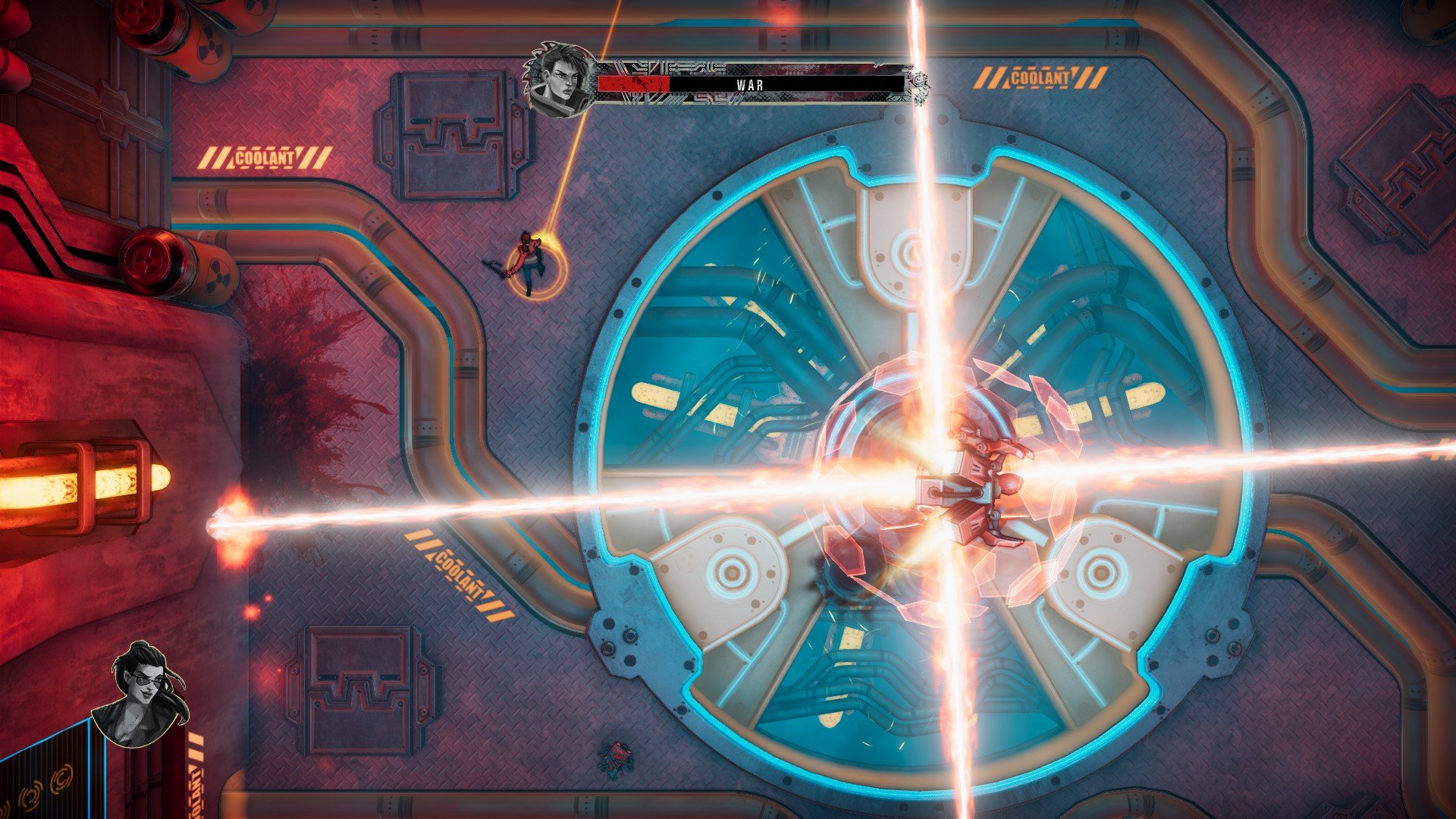
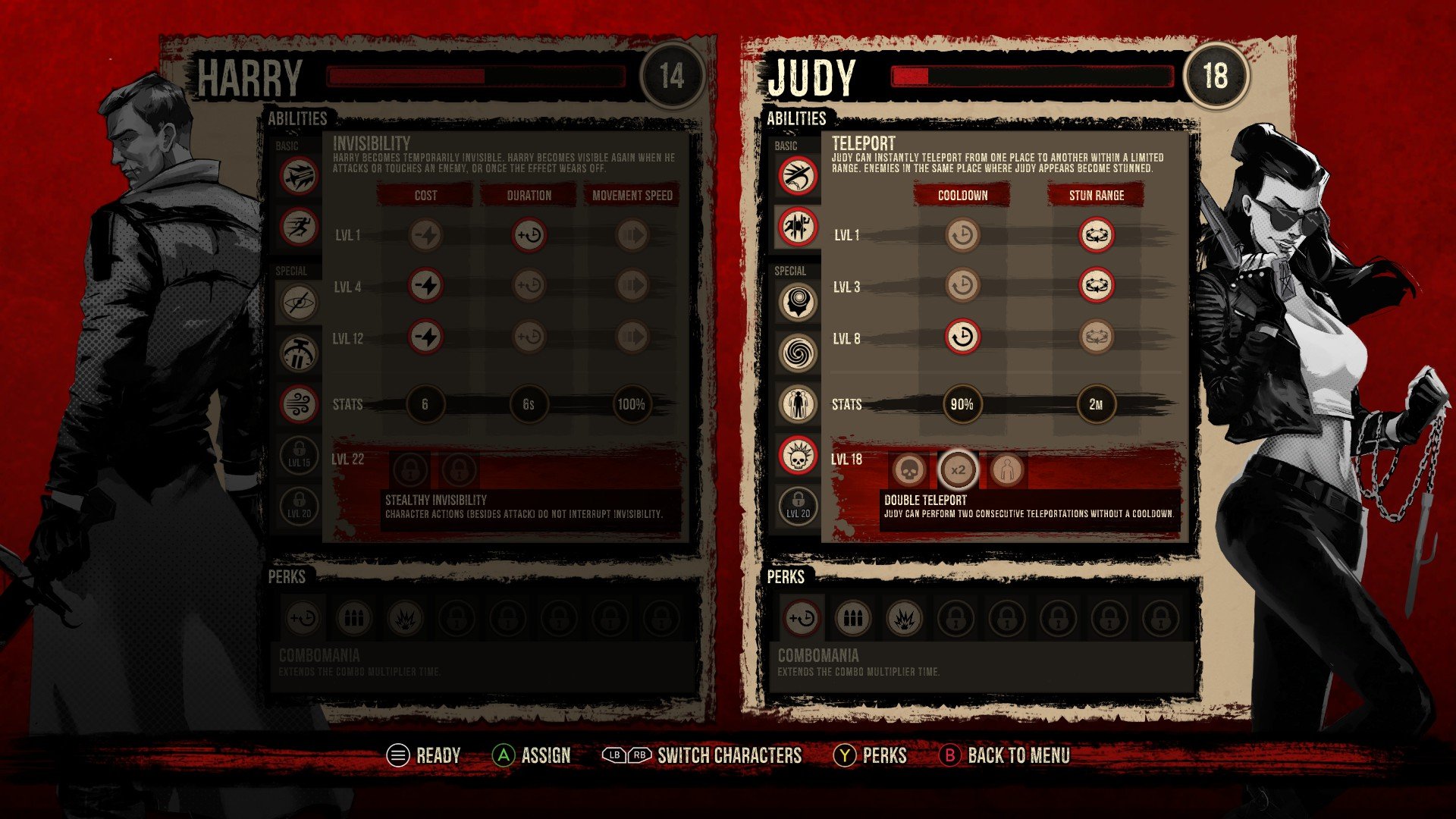
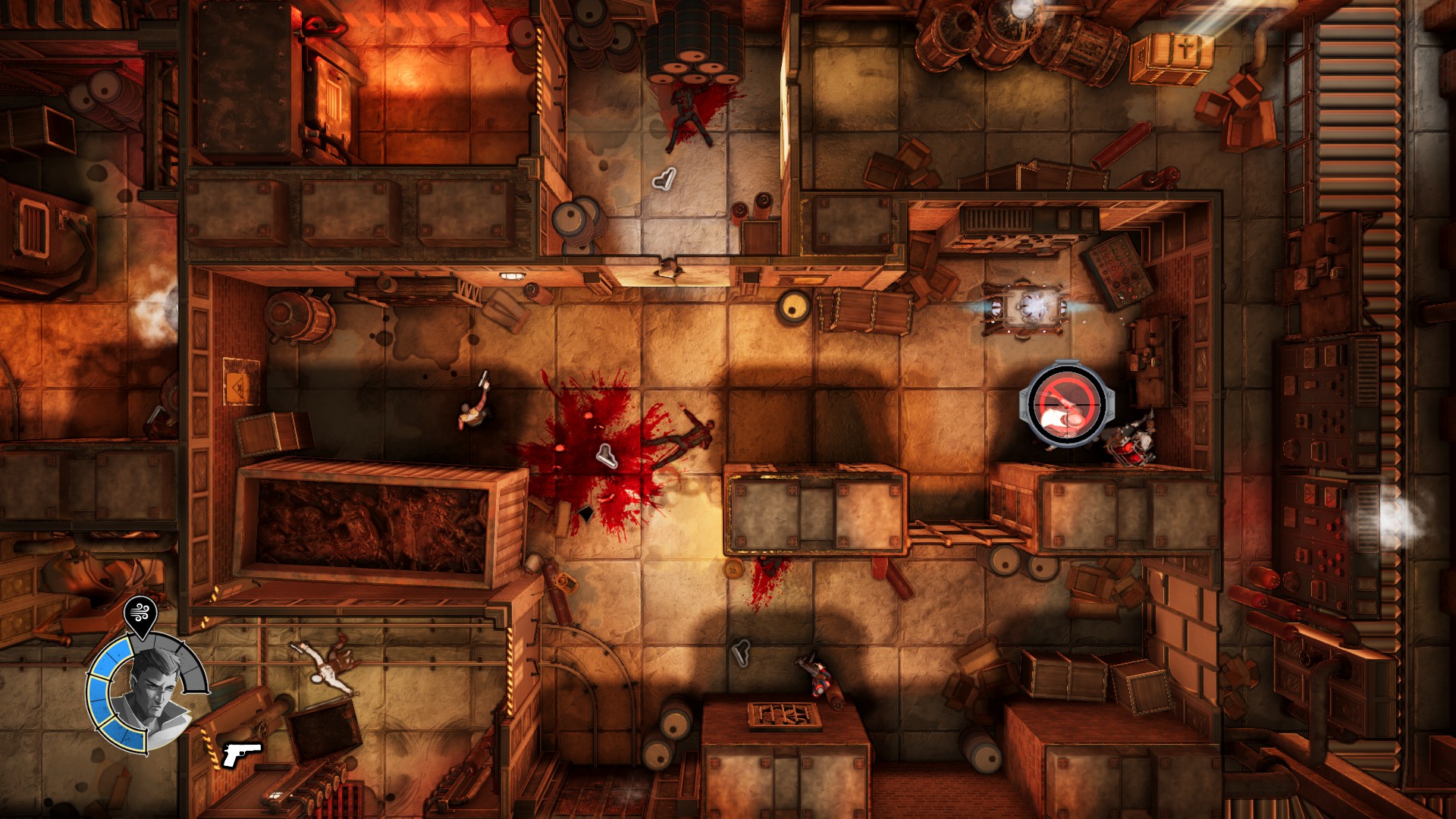
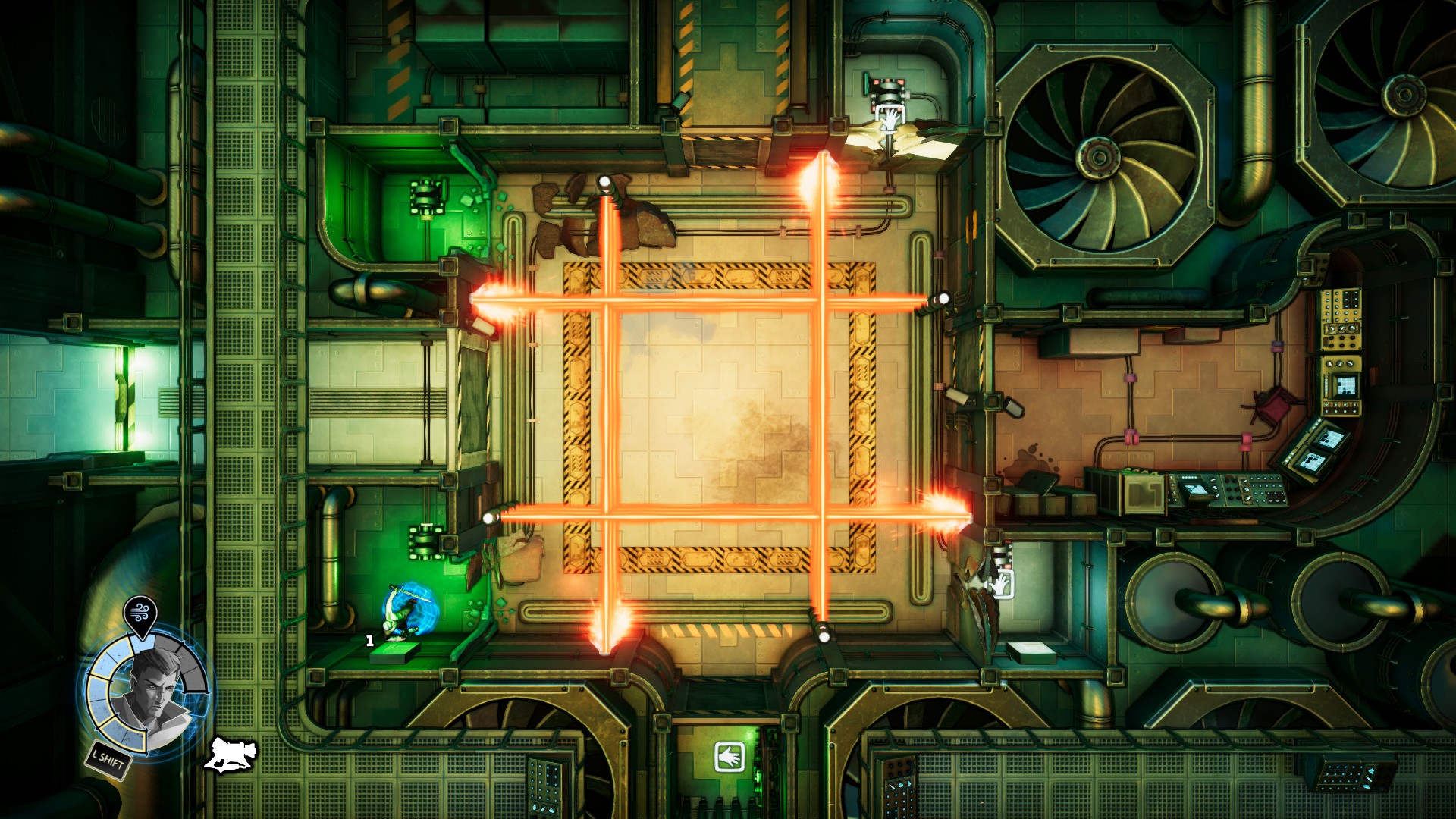





Published: Apr 18, 2019 04:04 am